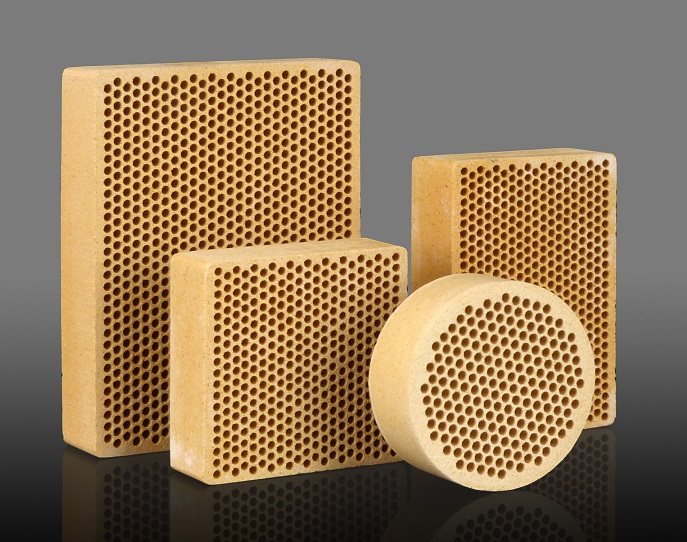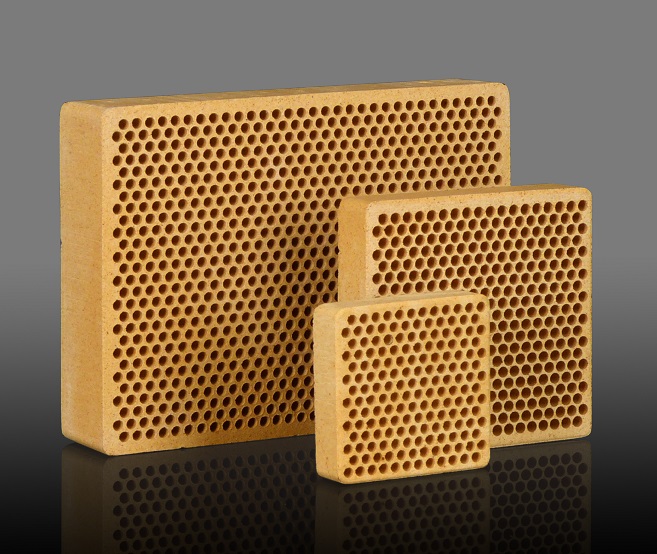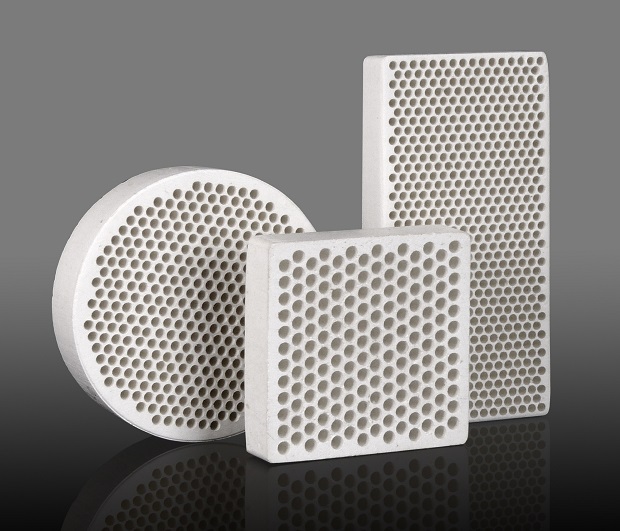Ceramic Filters PYRAL15®
For the filtration of aluminium alloys we recommend filters made of ceramic material PYRAL 15, which can be used up to a temperature of 850 ° C. This is our own specially developed material, which is based on the proven Pyrostat material, where – to reduce the undesirable cooling effect of the filter on the melt – the specific weight has been reduced by 30%. For the filtration of aluminium alloys are used filters with holes in diameter 1,8 – 2,3 mm (corresponds approximately to the porosity PPI 20 – PPI 15 of foam filters), depending on the type of alloy. The best results are achieved with holes of d. 2.0 mm.

Ceramic filters are now an integral part of production technology in most foundries. Their main benefit is better quality castings: – Less of surface defects – Better mechanical properties – Better accuracy of dimensions and shapes
Equally important is their economic contribution:
• Lower waste
• Lower costs of finishing operation
• Simpler gating system
Technical information
Chemical content: SiO2/Al2O3
Ceramic type: C 510 (mullit/cordierit)
Application Temperature: max. 850°C
Density: 1,4 g/cm3
Colour: Beige, Light Brown
Dimension Tollerances: Following drawings
The selection of a suitable filter is influenced by the following factors: the requirement for the quality of the casting, the complexity of the casting, the design of the inlet system, the mould material, the required casting speed and other aspects. Often the selection fails the first time and only by testing several types will the most effective type be selected. The pressed filter is characterized by a balanced ratio of properties that are important for achieving excellent filtration results: high filtration effect, stable flow area, dimensional accuracy and reasonable price. The specific dimensions of the pressed filters allow you to calculate the required flow area and select its appropriate size. Precisely defined and constant flow in pressed filters helps to stabilize the technological process of casting and especially increases the productivity of automatic moulding lines. Thanks to their full sides, moulded filters are suitable for automatic insertion into the mould.
Ceramic Filters PYROSTAT
We recommend PYROSTAT filters for the filtration of grey and ductile iron and non-ferrous metals, which can be used up to a temperature of 1500 ° C. It is a ceramic material whose main production components are SiO2 and Al2O3. These filters are characterized by a wide range of types specifically designed for a given type of metal. For grey cast iron are recommended filters with holes in diameter 1,5 – 2,3 mm (corresponds approximately to the porosity of PPI 30 – PPI 15 foam filters). Filters with a flow area of about 50% of the total filter area are most often used. If a maximum filtration effect is required, we recommend using filters with a filtration area of less than 50%. On the other hand, filters with an area of more than 60%, which ensures a high mould filling speed, are suitable for thin-walled castings. For ductile iron, which has a worse running ability, we recommend PYROSTAT filters with holes from diam. 2.0 mm to 2.8 mm (corresponds to app. porosity of foam filters PPI 20 – PPI 10). A suitable flow area is 50% or more, which ensures sufficient running-in of the metal into the mould.

Ceramic filters are now an integral part of production technology in most foundries. Their main benefit is better quality castings: – Less of surface defects – Better mechanical properties – Better accuracy of dimensions and shapes
Equally important is their economic contribution: – Lower waste – Lower costs of finishing operation – Simpler gating system
Technical information
Chemical content: SiO2/Al2O3
Ceramic type: C 510 (mullit/cordierit)
Application Temperature: max. max. 1500°C
Density: 1,9 g/cm3
Colour: Beige, Light Brown
Dimension Tollerances: Following drawings
Ceramic Filters RK5
Filters made of RK 5 material, which can be used up to a temperature of 1740 ° C, are intended for the filtration of carbon and alloy steels. For these metals are suitable holes from diam. 2.5 mm to 5.0 mm (HSC 15 – 5) If these filters are used in the fireclay gating, we can also supply these filters with our own fireclay chambers, which will facilitate the placement of the filter in the already designed gating system. At the moment, filters measuring 133 x 133 mm and circular d. 200 mm can be placed in this way in gating with a diameter of 60 and 80 mm.

Ceramic filters are now an integral part of production technology in most foundries. Their main benefit is better quality castings: – Less of surface defects – Better mechanical properties – Better accuracy of dimensions and shapes
Equally important is their economic contribution: – Lower waste – Lower costs of finishing operation – Simpler gating system
Technical information
Chemical content: Al2O3/SiO2
Ceramic type: Mullite/Corundum
Application Temp.: Max. 1740°C
Density: 2,1 g/cm3
Colour: White
Dimension Tollerances: Following drawings
The selection of a suitable filter is influenced by the following factors: the requirement for the quality of the casting, the complexity of the casting, the design of the inlet system, the mould material, the required casting speed and other aspects. Often the selection fails the first time and only by testing several types will the most effective type be selected. The pressed filter is characterized by a balanced ratio of properties that are important for achieving excellent filtration results: high filtration effect, stable flow area, dimensional accuracy and reasonable price. The specific dimensions of the pressed filters allow you to calculate the required flow area and select its appropriate size. Precisely defined and constant flow in pressed filters helps to stabilize the technological process of casting and especially increases the productivity of automatic moulding lines. Thanks to their full sides, moulded filters are suitable for automatic insertion into the mould.